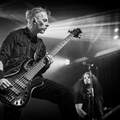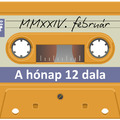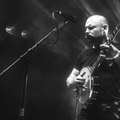Ten years has passed since the first release of Rengeteg, the fifth album of the Hungarian avantgarde project Thy Catafalque, originating from Makó. It was the first record written by Tamás Kátai only, without guitarist János Juhász, and Rengeteg has brought some changes in the life of Thy Catafalque in several respects. Our interview is mainly based on that record, but we also talked about the Mezolit concert which was held back in the summer and within the songs of Thy Catafalque were brought to stage for the very first time.
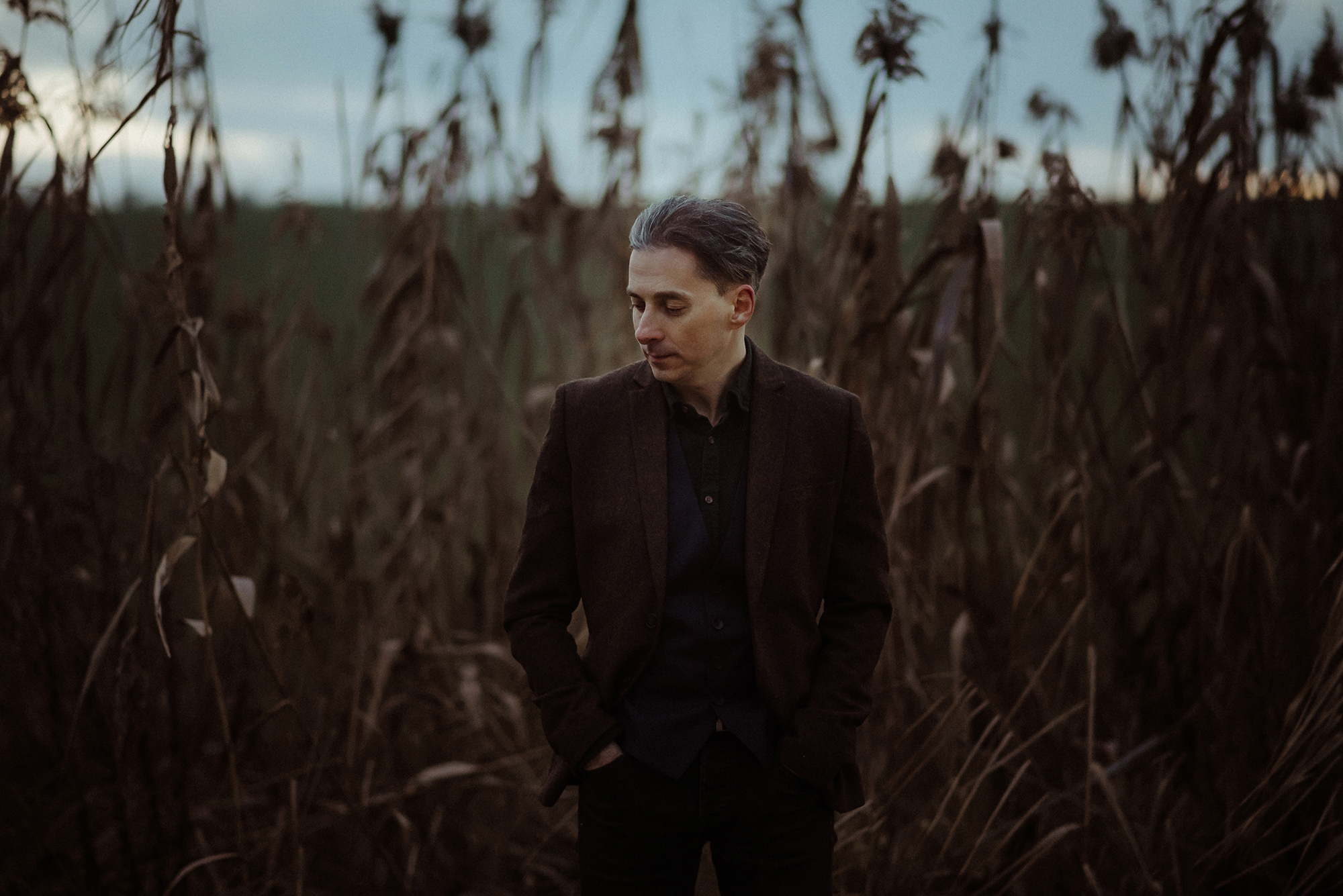
Tamás Kátai, 2021 // Photo by Orsolya Karancz
Rengeteg is celebrating its 10th anniversary in this November. What do you think of the record ten years after? How large influence did it have on the Hungarian or on the international metal scene and how did it stand the test of time?
I don’t find it that influential in that sense that there weren’t born so many similar music after the release. I didn’t come across anything like that, but what I noticed is that a lot of people liked it. A lot of people were introduced to the band by that record, and the first one is usually a larger influence than the later ones. One of the reasons behind this is that the album was released by Season of Mist, this was the first internationally-distributed Thy Catafalque-record and thus it reached a larger amount of listeners than the early albums. Rengeteg is a very popular album which is not an accidental thing, because the songs on it are really easy to get. These songs meant the peak of my cooperation with Attila (Attila Bakos, vocals), this was the most we could produce together. This wasn’t conscious, but as it was shown by the time, it was the most. The last time when I listened to Rengeteg was because of the Mezolit concert, and it wasn’t even the whole album, only those songs which were played live, and according to the reactions it seems that people still like them. I might say, those songs didn't age that bad.
Rengeteg means forest and also vast in Hungarian. The title of the record stands for itself or are there any other connotations?
There are a lot of songs about the forest on the record and as it’s a topic that I’m always returning to, the title is more like a summary. It was pertinent on the songs and on the sound too, because Rengeteg sounds very thick, that’s why I thought this title will suit the album. And in addition to that it’s not that complicated to pronounce, like the name of the previous record, Róka hasa rádió (which could be roughly translated as fox’s belly is a radio). It’s a title which absolutely can't be pronounced by foreigners, and it has some really awkward connotations. Some people think it means rock has a radio, and it’s dead serious. This simply just doesn’t work for foreign speakers, they can'tt pronounce the name and it looks lame. One needs to take care of that. I don’t name my records something with a lot of accents anymore, like Tűnő idő tárlat. This simply just can'tt be pronounced, so this is a difficult thing. I can take a Ukrainan band Drudkh as an example, because they entitle their albums in Ukrainan, and you just don’t call them by their name because you can’t, and that’s not good. So in my opinion it does worth it if you make a compromise. You can give Hungarian titles, but it’s better if it’s not totally unundrstandable outside Hungary. You have to be rational about it, otherwise the title will work against the band. I don’t feel the same about song titles, this is only an album-title-thing.
Can one say that this is something like a market consideration?
It is from a certain point of view, but my opinion is based only on my own experiences. I don’t like it either if I’m unable to pronounce the name of an album. And yes, there are some records which I didn’t listen to only because of my unability to pronounce the title. From this point of view the name of the band isn’t a jackpot either. If I had to name the band now, I surely wouldn’t choose the name it has now. I find it a little mannered now, but it suited that more theatrical music that we used to play back then. I don’t mind the name we've given to the band. It willl stay, and it’s okay.
Is there anything on your mind, what you’d name the band right now?
Vartyula (laughing)! No, there's nothing really. I’ve never thought about that. But there are like three or four bands named just simply Catafalque out there.
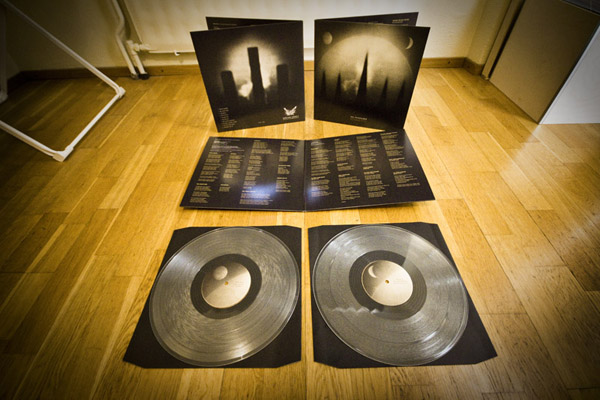
Transparent double vinyl edition of Rengeteg, released by Blood Music in 2013.
Let’s put it back to Rengeteg. Can you recall the circumstances of the making process?
Róka was released in 2009, and at that time I was already living in Scotland. After the release I started to write the album immediately, as I always do. I don't exactly know where János (János Juhász, guitars) was, he was living in the Netherlands, in Norway or in Hungary back then, I don’t really know. It was hard to reach him, he had some problems with his e-mail address, and his phone number was always changing for various reasons. So I started to work on the new record and at some point I just realized that I got into the music so much, that there was already more than one hour done. That happened in a relatively short time, I think the whole album was ready in one year. That time I was working at a printing factory in Dalkeith, which is a small town next to Edinburgh. A lot of lyrics and musical material were born there, because the factory had a constant, blurred, monotone rhythm going on all the time, and it was really inspiring to me. It helped me a lot to write lyrics for example. It’s like the sound of a train, it also inspires me. When I think about Rengeteg, I have this part of my life before my eyes. The printing company in Dalkeith at dawn, at night, always.
And what about János leaving the band? How did it come to that?
He showed up when I was ready with the album, and there was no place for any more songs. I suggested to release it like that, and let’s work together on the next material. He was disappointed, it was like a nail in the heart for him, that’s why he left. I blamed myself for many years because of what happened, but now I can see clearly that if our divorce didn’t happen that time, it would happen in the near future. He liked only our first two records, Sublunary Tragedies and Microcosmos. It was a huge problem too that his name wasn’t mentioned in the press quite a few times. In the reviews you could find Tamás Kátai everywhere, but János Juhász nowhere. Which is not my fault, because I’m not the one who tells the journalists what to write, but it was just too much for him that his work wasn’t appreciated after those songs in which he played a great role. He wrote the guitars, so the first three records would become nothing without him obviously. Róka would become something, because his lack of motivation was perceptible that time.
Do you keep in touch?
We talk, and we met sometimes when we come across each other in Makó. If there’s a re-release of the early albums I always give him a copy, but he’s not interested in the new records, which is totally understandable, he’s into different stuff. He has this band now called Damnation and I gave them some help by managing the cover. I even watched them rehearse, so I help if I can, it’s obvious. Not to mention that I know the bigger part of the band for ages. I would invite him to be a part of the Mezolit concert at Fekete Zaj, but there has been only one song in which he played the guitars originally, and he’s not that enthusiastic about playing live with Damnation either, so it wouldn't make any sense if I invited him. I asked him to visit the festival, but unfortunately he couldn’t come.
The reason why I ask this is that one can easily perceive the atmosphere changing on the Thy Catafalque records as time went on. In my opinion Róka hasa rádió was something like a transition, and this light and graceful atmosphere got mature on Rengeteg, where János had no guitar material at all. Despite the fact that there are cold and massive tracks on the album, as easy and almost hit-like songs as Kel keleti szél, Trilobita, or Kék ingem lobogó weren’t written before.
Yes, but this is because of the vocals too. Attila had a really suitable voice for that, his register and his style just fits perfectly these folk-like, melodic and more compact songs.
János’ departure can't be connected to that?
No, it can't. It’s just simply me starting to play the guitar, and because I have a different style and I wasn’t the best guitar player – which I’m still not –, I had more simple riffs than János, and that's why the songs became more simple as well. There were some songs that I wasn’t able to play in the way I actually wanted to, so I had to manage it in another way. So because of these lighter and simpler riffs the songs became more easy to get. Although I woudn’t call all the songs that easy, since Fekete mezők for example is really heavy, but on the whole the songs are plain and easy to follow. They made an exciting blend with these melodic vocals.
In 2016 HangSúly released the outcome of their research for the most influential Hungarian metal albums, which list included Rengeteg as the only record released after 2010.
I remember it really surprised me. I really wondered, because I didn’t think Rengeteg is that well-known. We had no live performance at all, I wasn’t even living in Hungary, and I don’t remember that it got that much response from Hungary or from anywhere else. It did surprise me honestly, because I don’t think it has that much influence musically on anything going on in the Hungarian or in the international metal scene.
But in the underground scene Thy Catafalque became a point of reference.
That may be, and I’m happy about it. I don’t know how true this statement is, but if it’s true I’m glad. Because it’s underground music, it has always been. We came from the underground, and we behaved accordingly. I’ve been recording all the albums at my home studio, and when we had no label to release Tűnő idő tárlat, I burned all the CDs personally one by one and I made the covers at the printing factory in Makó, all the hundred copies. I assembled the whole and sent it to different places as it should be.
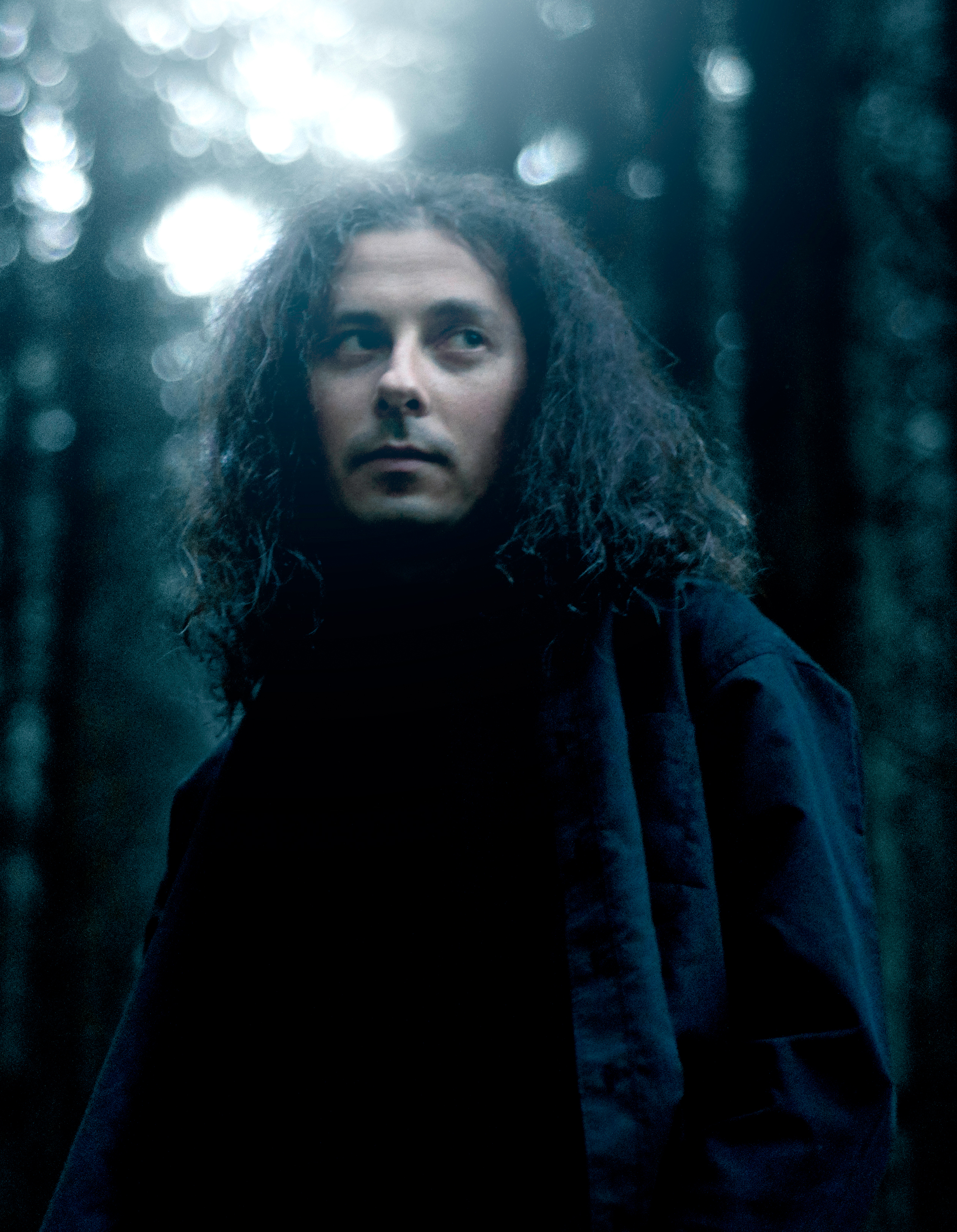
Tamás Kátai, 2011 // Photo by Dylan Kitchener
However, Rengeteg was released by Season of Mist. How did you get the record deal?
I sent them a demo with three songs and they answered quickly. It turned out that they already know the band, because I sent them the previous albums, Róka and Tűnő idő as well and they had the CDs, even more copies. This turned out when they invited me along with other musicians to the opening party of their new storehouse in Marseille. Some Tűnő idő tárlat copies just showed up and they made me sign the CDs. Michael the boss told me that they've already known the band and they enjoyed the music very much, but didn’t want to give us an offer, because Thy Catafalque was really underground that time and not that well-known, so a record deal would have been a risk for them. But because Róka was released by Epidemie Records, which is a small but a regular and a real label, it was enough to make a foundation on which they could build, because there was a minimal base already.
Then this is a never-falling formula, because Season of Mist is still your label, although – if I know it correctly – the original contract was only for 1+1 records.
Yes, it was, but it’s been the same since then. The contract always renews itself and I find this a good thing, because I’m not tied. They released six albums now, so it’s obvious that we can work with each other with full trust, to be more particular.
The only negative feedback I’ve heard about Rengeteg is that the sound is too raw, the drums are poorly mixed, etc. My personal opinion is that if the actual music is good and able to build up the required atmosphere, the sound doesn’t really matter. What do you think about that when someone says he can't enjoy the music only because of the sound?
Anyone can say that, it’s absolutely right. I feel the same with several records, there are some which I’m hardly able to listen to because of the sound. I can instantly take our first two albums as an example (laughing). I think that the critics on the sound of Rengeteg are valid. It doesn’t sound good effectively, the drum machine is too powerful, but this was just as much of a DIY-work, as before and since then. On the other hand I don’t really mind it, because that’s all what I could do at the time, that was the peak of what I could produce from the material, the technics and the knowledge I had back then. I couldn’t do it better. It truly doesn’t sound good, but on a certain level it does. For example, in Fekete mezők this kind of heaviness turns out really great. There’s a plenty of guitar tracks tuned down to A until the end of the song, and as a whole it is really diffuse, so this massive sound fits that song very well. In an absolute point of view it obviously doesn’t sound good, but that song was supposed to be this heavy and it accomplishes this aim. This is more important to me than having professionally high standards. The point here is not that it meets the standards or not, the point is that the music should transmit those things what it’s supposed to. And the way you choose to reach this is marginal.
So the atmosphere plays the main role, right?
This is a little bit like an escape route, because if I do a bad job, I can always say that it’s because of the atmosphere, but yes, it’s the goal that’s important, not how one achieves it.
The band also became more popular after Rengeteg.
Yes, it did, Season of Mist was a giant step after Epidemie Records, and as I've said before, the songs were more light, that’s why the whole record was that easy to get.
Just because your next album, Sgùrr was also a hit, even though it’s really grim and has a totally different atmosphere. The popularity of Rengeteg has a huge role in it, don’t you think?
I don’t think it was really a hit, because Sgùrr disappointed a lot of fans exactly because they didn’t expect something like that after Rengeteg. Attila was not a part of Thy Catafalque anymore, there were no clean vocals, and I didn’t know what to do. Sgùrr was released in 2015, but I had an album in 2013. I recorded one between Rengeteg and Sgùrr, but I decided not to release it because I thought it’s not good enough. So I put it away, but some materials were re-used later. For example Sirály is from that record, Ági (Ágnes Tóth, vocals, The Moon and the Nightspirit) did the vocals for that song three or four years before the release of Meta. I decided to restart, and that’s how Sgùrr has been created. I wanted it to sound really different than Rengeteg, I meant this restart. And it was a restart really, because the whole atmosphere and my attitude to the songwriting process is totally different on that record. Personally I like Sgùrr more than Rengeteg, not to contest the larger importance of the latter one.
Can one say that Rengeteg was like a foundation for the succes of the following albums, and does that statement stand true that Rengeteg took the band to the public?
After all it’s true in some sense. Rengeteg was really great for making a base, a foundation. That record wasn’t enough in itself, there has been a lot of work to come to the present, to the tenth album where we are now and where the music includes a lot of other influences as well. But Rengeteg was in fact a symbolic record, a watershed if one wants to say that. Both musically and concerning the status of the band.
Did you enjoy the sound of the songs at Fekete Zaj? Were you satisfied with the live sound?
Yes, I was, I was very glad. I didn’t interfere in anything, not even in the setlist. The others were responsible to arrange that, it wasn’t me who handed out the songs. I listened to the songs like a guest myself when I first heard them at the main rehearsal. The second time when I listened to the set was already at the festival, and I really enjoyed the sound, even if not every detail was true to the studio version. This couldn’t be expected though, because I wrote those songs without having any idea of taking them to the stage, and on the other hand Attila and Ági weren’t able to be a part of the project. My personal favourite was Fekete mezők, that was a beautiful performance. Andris (András Nagy, vocals, Sear Bliss, Arkhē, etc.) and the others did a really great job with that song, I liked it even more than the studio version. They made some changes and with the drums of Tadeusz (Tadeusz Rieckmann, drums, Týr, ex-Dalriada) the song was truly alive, it was the peak of the night for me. I was a little afraid because it’s a long song, I thought it might be boring, but it absoultely wasn’t. And in addition to that, that night was sold out which was a big surprise for me, I didn’t think that there’s such a huge demand for this project. Especially in the current COVID-situation when a plenty of people couldn’t get in. That’s the same with foreigners, only just a few people could come and see the concert, not to mention that Fekete Zaj isn’t even held in Budapest, which is a filter too.
How come you could be seen on the stage?
At first I didn’t want to play. But then came the idea to separate the concert into different parts, and there was one, in which Zolcsi (Zoltán Kónya, guitars, Gire), Lambert (Lambert Lédeczy, vocals, Ahriman, Mörbid Carnage, etc.), Árpi Szenti (Árpád Szenti, drums, Ahriman, Athame, Mörbid Carnage, etc.) and Gabi Vári (Gábor Vári, guitars, Dystopia) took part, and they all descend from Szeged and Makó. There was no bass player yet, so I said that I will be the one. It was kind of a joke but the others got hooked on the idea so bad that finally I became the bass player. By the way this was really good, because I’ve played together with Zolcsi for 12 years in Gire, and our last gig was in September of 2007 in Hódmezővásárhely. That was the last time me and Zolcsi hit the stage, and after 14 years when we played live again, we were together just like in the old times. And in addition to that, on the last Gire show Lambert played with us as well, he did guest vocals on our song Aranyhajnal, and now when the songs of Thy Catafalque were presented live for the first time, he was on the stage with us again. This was important to me and it did feel really good to step on the stage after so many years with my friends on my side. I know Árpi for ages too, he is from Makó, just like me, and Gabi Vári is from Szeged. So it was really good for me to be surrounded with people like that on the stage. I accepted this gladly and I enjoyed it much more than I thought I would.
Why were you afraid that this whole performance couldn’t be managed?
If I had to manage all this, I would've been afraid this time too. But luckily Balázs Adorján and Balázs Varga took the burden off my shoulders, and they did a really great work. In fact, I was only a bass player during this whole performance, which was enough for me. And it was really good to play together with people I like, including all the other musicians.
And it had a huge factor of uniqueness, which made the whole concert much more special…
Yes, it did, and there won’t be more, I don’t want it again in this form either. But time will show if we can organize a normal band. If there will be one, I would like to have a normal, classic band, not an army, although it’s a bit uncertain in the current situation. We can't build anything now, but it will turn out what happens in the future.
You’ve been saying for a long time, that Thy Catafalque is only a studio project, and a live performance is beyond all probability, but it happened after all. There’s a question, which may bores you, but I must ask it. When you’re asked about a possible Gire-reunion, you always answer that it’s more than unlikely, but now, after an actual Thy Catafalque concert, what would you say?
Gire is more specific, because there were three of us and none of us could be changed. Balázs (Balázs Hermann, bass, Gire) is living in Glasgow for example, he’s totally separated, but Gire is about the three of us. Anyway, I would rather put effort in Thy Catafalque when it comes to future concerts. But in Gire the bottleneck is not me, it’s Zolcsi. He is the one who has to learn the songs again, and he is the one who hasn’t sung for 14 years, so it’s harder for him.
What about some new material?
I have to point my finger on Zolcsi again, because if I start to write songs for Gire, they become TC songs. I can do anything in TC, where the music contains Gire-like elements as well, which are made with intent, because I like that atmosphere very much. Sometimes I use the same voice samples I used to operate with in Gire, in Móló for example I use the same industrial samples. This is conscious, my aim is to bring back that spirit. Zolcsi also does vocals for Thy Catafalque very often, and Balázs was a guest musician a few times too. I can do these things in Thy Catafalque, but when it comes to Gire, songwriting is Zolcsi’s duty, because that’s the difference between these two bands. I really like Gire, it was one of the most important factors in my life, I only have blissful memories about it. That’s why it would really matter what we do if we did something. If there is no idea or inspiration, it’s better to let it go.
Let’s put it back to Thy Catafalque. How do you estimate the last ten years since Rengeteg? Those who know the band also know what changes the music has gone through from record to record, but people know almost nothing about the influences you had back then and the influences you have now.
I inspire mainly from the death metal music of the 90s. At that time a lot of bands began to play experimental music, they released records which were unimaginable before, and these are my favourites. Odium or Feel Sorry For The Fanatic by Morgoth for example, Spheres by Pestilence, Elements by Atheist, records by Nocturnus and Morbid Angel, Anathema, doom like My Dying Bride, early Paradise Lost, Tiamat, Cathedral, bands from the Swedish death metal scene like Dismember, Entombed, Grave. I really liked them. One could catch the creativity easily back then, every band had a different tone. And although it’s perceptible nowadays as well, it’s harder to find the kind of uniqueness that was present back then. So that’s what I listen to, that hasn’t changed. But something has and it’s that I don’t really take these influences that seriously, as I used to. Songs like Tsitsushka, couldn’t even be on Rengeteg, it’s obvious. And in addition to that, I’ve been listening to such music in the last few years, which I haven’t or just barely have earlier. Arab music for example, or music from the Middle-East, Spanish music, folk, flamenco, and other genres, which has absolutely nothing to do with metal. It was similar back then, but it didn’t have any effect on the music I play. But it doesn’t bother me anymore, I don’t have strong feelings for playing metal at all costs, I’m able to let it go. So what I play became the music of joy.
If we take a step back from music, what kind of cultural goods do you consume?
The problem is that I have these periods meaning that when I’m done with an album, I’m going to start writing the next one immediately. During these periods I don’t listen to that much music, because it interrupts me, and that’s the same with reading, it just takes the focus away. And as a result I can hardly see the world as a whole, because it’s happening again and again, and I just write the new music. This is not so good by the way, but my wish to create new stuff is stronger than my needs to consume other cultural goods, and there’s no compatibility between these two. This has been going on for a while, so maybe I should take a break and have a look around, because I get little input.
Just to attach to the topic mentioned before, the break you took after Rengeteg was like a fertile soil for Sgùrr in my opinion.
There were other factors as well. Attila was gone and I didn’t know exactly what to do, I had some personal issues too, moving and changing workplace. I had more important things to do than writing music, because there are obviously more important things in my life. That’s why there were four years between the two records, and let’s not forget the one that I wrote and threw out, plus I released three albums in 2016, which were written predominantly in these times.
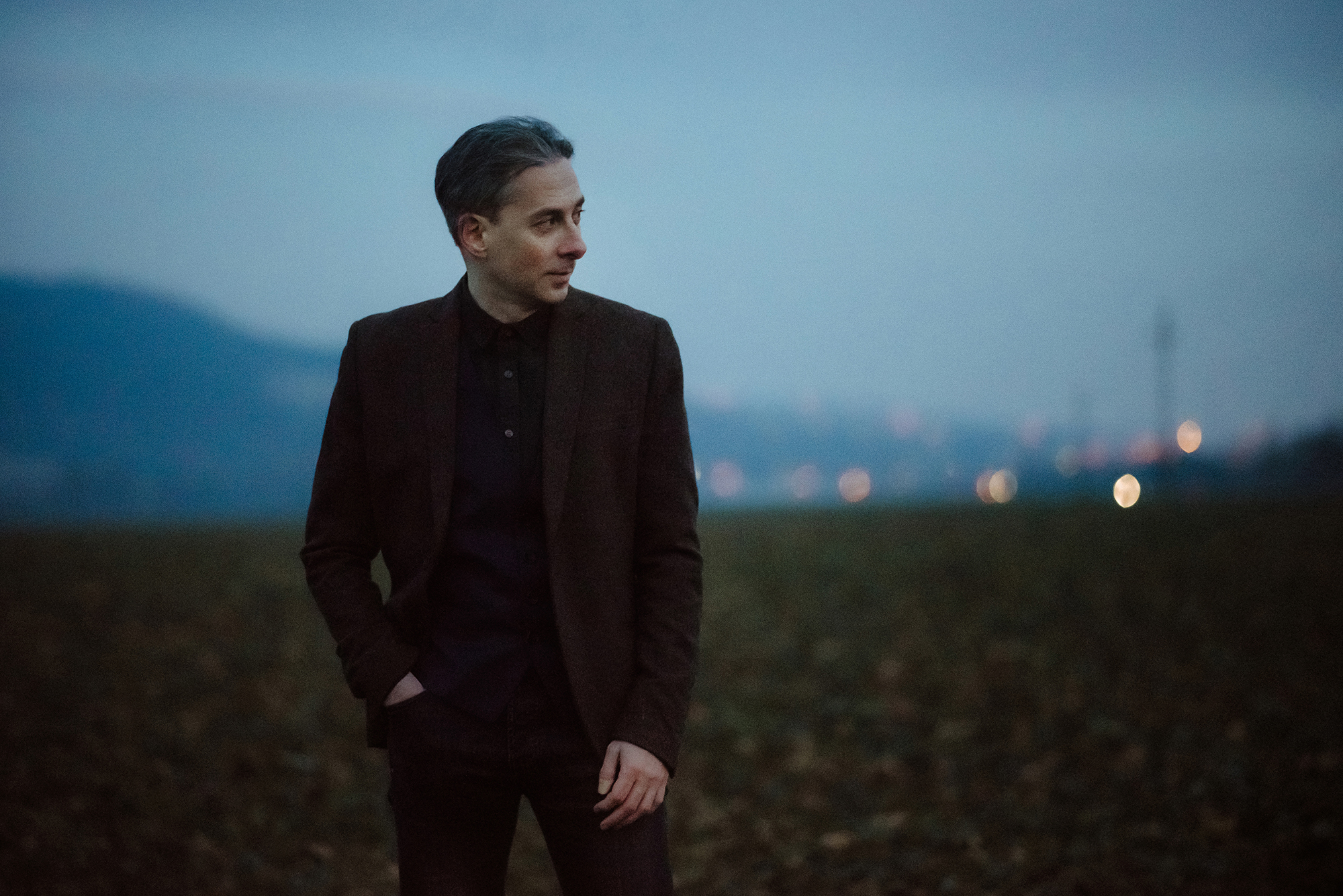
Tamás Kátai, 2021 // Photo by Orsolya Karancz
Could you tell something about the new album that you’re writing right now?
I’m not done with it yet, so a lot of things could change. But it will be short, most likely around 45 minutes, because I don’t want to release a double vinyl, so it’s a conscious thing. Honestly I have a bad feeling about releasing a double vinyl only because I wrote two more songs and the album is 10 minutes longer. This is wasting material, needless production of plastic. So I try to keep it in 45 minutes, I did it with Naiv and I wanted to do the same with Vadak as well, but I couldn’t manage that, it became too long in the end. But now I stopped where I thought I had to. There will be ten songs on the new record, which will be significantly more riff-oriented than the last one. Sometimes even dark, because I felt I should write these out of my mind in order to be able to play music in a more playful and free manner in the future. So it won’t be progressive, not at all, I would rather call it regressive.
What do you think about the release date? Or is this an early question?
The thing is that the label asked for the release of the live concert, which will manifest in some form, maybe in a DVD. So the release of the new record depends on how they want to coordinate these things, if they want to release the live record as a bonus material with the new album or if they want to release it as a standalone edition. It would be a bad move to release the new album in January only six months after the previous one.
Do you work with a vast amount of guest musicians again, or do you tap on the breaks now?
I won’t have that many guests than last time when there were 16 of them. Now I will work with eight or nine musicians and the most of them are vocalists, there will be only four or five people on extra instruments. So there’s not that huge hype as last time when I put every instrument on the album that just came to my mind.
Please suggest some Hungarian bands or musicians who you like and who deserve attention!
Honestly, these are the people whom I play with. I ask them to collaborate on my albums, because I like what they do. The concert basically covered the scene which I feel close to myself in Hungary. There are some active bands who I really like, for example Perihelion, Watch My Dying, Sear Bliss, or Ördög. I don’t find this surprising, because these bands are close to Thy Catafalque both lyrically and musically. We are the same generation, we played with many of them with Gire, and there’s a common ethos, that is the reason of us being on the same wavelength.
Interview and English translation by mäyräkoira
Photo credits: Orsolya Karancz, Dylan Kitchener
Thy Catafalque social media and streaming:
